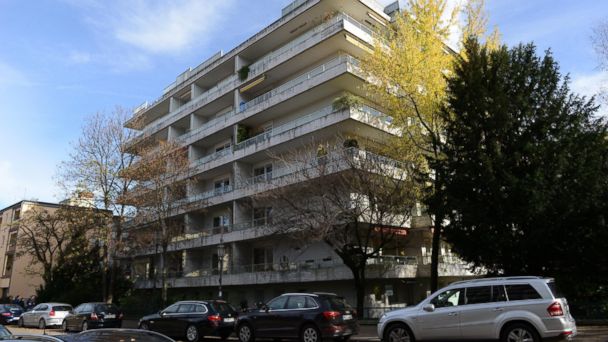Masterpieces Looted by Nazis Found Among Tins of Food
A "loner" who allegedly hid hundreds of masterpieces believed looted by the Nazis during World War II may have sold some of the paintings, officials believe.
German police have recovered 1,500 pieces of artwork by some of the world's most famous artists from apartment of Cornelius Gurlitt in the German city of Munich. Among the hundreds of paintings were also some empty frames, leading some to believe that certain paintings have been sold, according to the news magazine Focus.
The collection of modernist art, valued at around $1.35 billion, is believed to include works by Pablo Picasso, Henri Matisse and Marc Chagall and is part of a collection that was stolen by the Nazis in the 1930s and 1940s, Focus reported.
"It's very significant," Julian Radcliffe, chairman of The Art Loss Register, told ABC News. He added that it's the biggest cache found in one place held by a private individual since World War II and is "a great joy that these works have been recovered."
The artwork are believed to have been kept in a dark room among tins of food. Gurlitt, described as a loner, allegedly inherited the masterpieces from his father, Hildebrand, a German art collector.
According to Radcliffe, modernist works would have been confiscated or taken from Jewish collectors by the Nazis who regarded them as "degenerate art," and not in keeping with the Nazi image. He adds that the Holocaust played a huge role in the vast amounts of looting during that period and that, "the art looted by the Nazis may turn up in 100 years time."
The Art Loss Register, which is the world's largest private database for lost and stolen art and artefacts, estimated there are some 50,000 items yet to be recovered.
While the exact details have not been confirmed, the Focus article suggests that German police came across the artwork by chance when tax authorities began investigating Gurlitt in early 2011 for tax evasion.
For Radcliffe, he's not surprised that it has taken so long for this discovery to come to light. Aside from the fact that it could well have been kept a secret as part of an ongoing investigation, he also suggests that the issue of false claimants is another factor.
Many of the victims have apparently been contacted but if the rightful owners can't be found, recovered art usually goes to charities and museums.
ABC News has contacted German police but no comment will be made until a press conference by the German Customs Investigation Office on Tuesday.

The apartment in Munich's Schwabing district where art masterpieces stolen by the Nazis were discovered, Nov. 4, 2013. Christof Stache/AFP/Getty Images